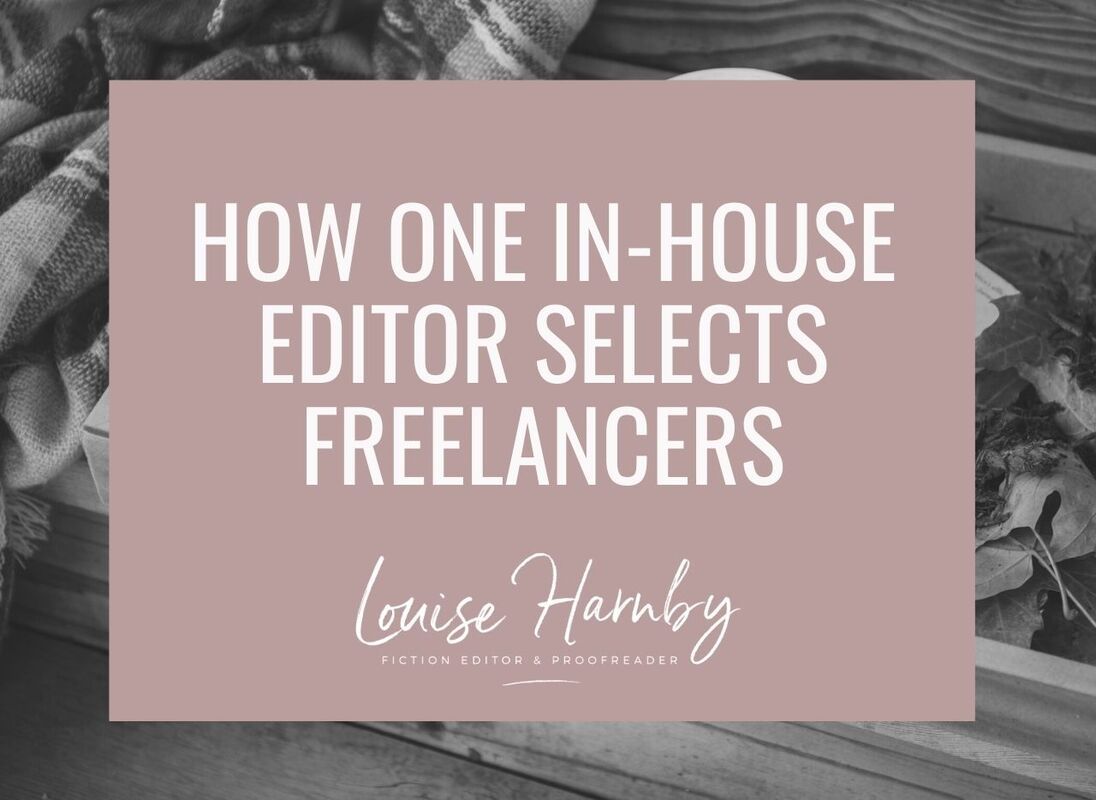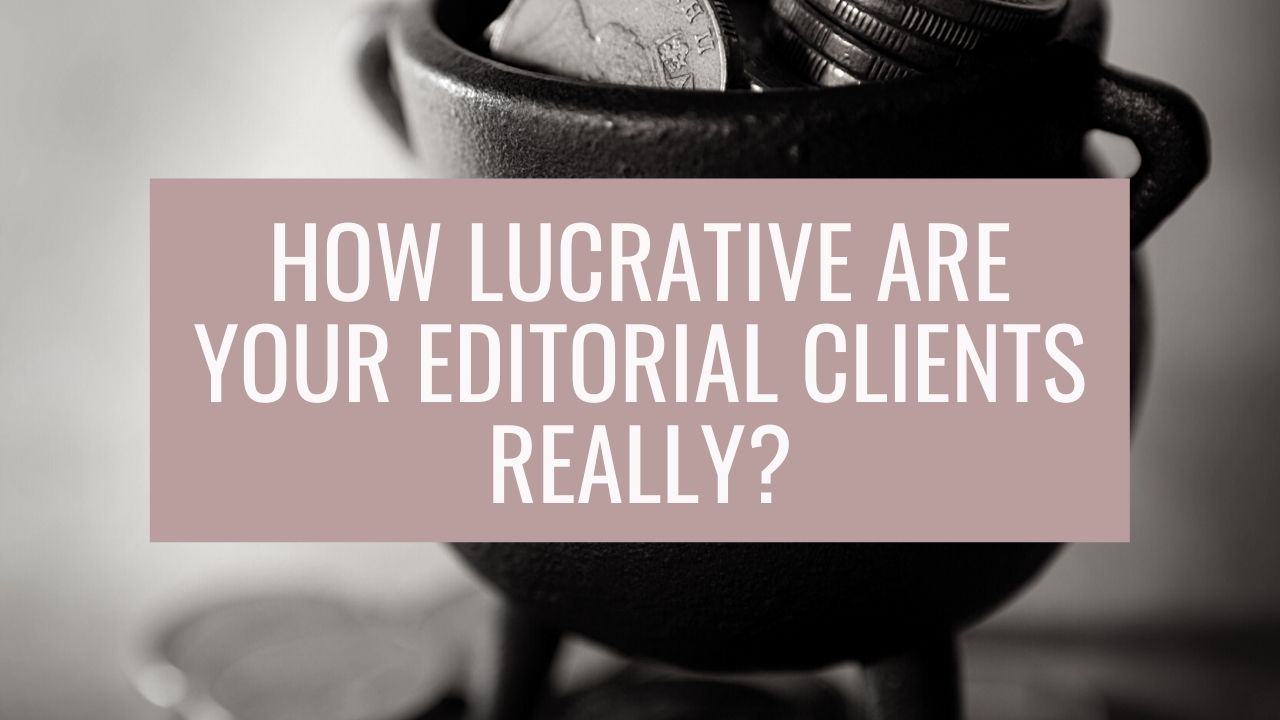|
An in-house editor sheds light on his experiences of in-house editorial production, including how freelance editors and proofreaders are selected.
This editor's contributions are from the point of view of a publishing professional, broadly speaking. So while some of the things he has to say are informed by his experiences within the UK company for which he works, his residency there is not in the capacity of a representative of that particular publishing house.
Louise: Hi, Philip. It’s great to have you here! First, can you tell us a little bit about yourself? It would be useful to have an overview of your daily responsibilities – many of our readers haven’t worked in-house so they may be unaware of what an in-house editor does. I understand that different presses work in different ways, but it would still be handy to know what you do.
UE: Hi Louise. It’s equally great to be contributing to your blog. So, a little bit about myself. I started working in publishing straight out of University back in 2010. I studied English and German at the University of Reading – and since my passion is language, publishing seemed like a natural career choice. I have been working in the editorial department of an academic publishing house for the past five years. It’s absolutely incredible how quickly time flies. You are completely right – every publishing house operates in slightly different ways, so I can’t say the experience is representative of the role of in-house editors up and down the country. And, even after five years, I am still rather new to the industry, compared with some of my colleagues, so I don’t speak as the one true voice of experience either. So, about my role … As an editor, I am responsible for the project management of up to fifteen social science/humanities titles at any given time. My ultimate responsibility is ensuring the standards of the final product are in keeping with company and author expectations. One thing that makes my role unique is that I, as an in-house editor, am responsible for typesetting my own projects. It is absolutely fantastic to feel so involved with a project from day one to the nerve-wracking day the book is ready to be sent to print. There is nothing better than having a satisfied author! Louise: Which editorial services do you currently contract out to freelancers? Structural/development editing, copy-editing, proofreading, indexing? Anything else? UE: We have three routes to print:
Louise: Today, I’d specifically like to focus on the commissioning of new freelancers. One question that comes up a lot in the freelance editorial community is: How does one get noticed by publishers? So do you use particular directories when you’re looking to source new suppliers, and if so which ones? Or do you consider freelancers who’ve contacted you direct (by email, telephone, letter)? How about referrals from colleagues working for other presses? UE: In collaboration with my line manager, I am responsible for curating the freelancer pool and enhancing freelancer processes, so I feel I can answer this question definitively. The best way to get noticed by a publishing house is simply by finding out who the relevant in-house contact responsible for the freelancer pool is, and then sending them a quick message to enquire about the process. If you don’t ever ask, you’re never going to know. Granted, a lot of publishers have established pools of people they use. However, I feel that you can never have too many freelancers in your pool – especially law proofreaders, who understand OSCOLA referencing. A CV and covering letter is a good base from which to start, but I’ve met freelancers in person to whom I have offered work. For example, I made new contacts off the back of attending the Society of Indexers (SI) conference in Cirencester in 2014, and many more at the joint Society for Editors and Proofreaders (SfEP)/SI conference in York in 2015. As an in-house editor, I would offer the following two key pieces of advice to any editorial freelancer:
Louise: When you read a CV and covering letter, or view someone’s listing in a membership directory, what are the key stand-out points that you're looking for? Here, I’m thinking about the skills, experience, training, and other qualifications that make you think, “Yes, that person’s someone we want in our freelance bank.” When I announced the launch of this column, two of my colleagues asked specific questions that relate directly to these issues. Just as a reminder I’ve included them here:
UE: It is a combination of different factors that determines whether a particular person is suitable for our freelancer pool. Since we have a quite full freelancer list, freelancer specialities tend to be significant. A good freelancer should be able to work on a variety of different material, but it is always good having somebody who really understands the text. Law, for example, tends to be one of those lists with a lot of subject-specific terms, and it is always good when these are understood in context. Having professional accreditation is desirable. For example, with indexing we look for membership of the SI, and with proofreading we look to the SfEP. Louise: How important is prior publishing experience, broadly speaking? If a freelancer has worked in-house, is this a strong selling point for you? Even if they haven’t worked in-house, is it important that they’ve worked for other publishers? I’m interested in your views on this because I’m often asked by new entrants to the field whether a lack of publishing experience means it will be more difficult for them to secure work with publishers. UE: In general, prior experience is important to in-house editors. If I see that a freelancer has worked for a particular client with similar lists to ours, then I will assume some level of familiarity with the subject matter. Professional accreditation is great, but experience is what can bring these qualifications to life. I understand that this is often one of the hardest things for new freelancers. They want to gain experience, but in order to do so they have to be given work. And to be given work, they need experience. You see where the problem is! I do therefore respect the fact that everyone has to start somewhere. You can often get a feeling from initial exchanges with freelancers whether your work together is going to be fruitful – call it editor’s intuition. Since all publishing houses work in different ways, it generally takes a couple of projects to get freelancers up to speed with working processes, but, by and large, the results are very pleasing. Louise: Finally, do you have any further advice you’d like to share with freelancers who want to acquire work with publishers? UE: Great question – I would say the following are points to bear in mind for anyone looking to acquire work:
Louise Harnby is a line editor, copyeditor and proofreader who specializes in working with crime, mystery, suspense and thriller writers.
She is an Advanced Professional Member of the Chartered Institute of Editing and Proofreading (CIEP), a member of ACES, a Partner Member of The Alliance of Independent Authors (ALLi), and co-hosts The Editing Podcast. Visit her business website at Louise Harnby | Fiction Editor & Proofreader, say hello on Twitter at @LouiseHarnby, connect via Facebook and LinkedIn, and check out her books and courses.
14 Comments
How lucrative are your editorial clients really? Keeping an eye on creeping costs (Part II)9/3/2015
We need to take care when making assumptions about how lucrative certain client types are, particularly with regard to the time each of us spends on elements of the process that are unbillable. Here's part 1.
In this two-parter, I consider the care we need to take when making assumptions about how lucrative certain client types are, particularly with regard to the time each of us spends on elements of the process that are unbillable.
These unbillable elements can occur during the booking phase of a project, during the actual project work, and after completion of the work. Part I considered the problems of defining how well clients pay and how fee expectations can vary even within, as well as between, client types. Then I looked at the booking phase of proofreading work, and considered how the situation can vary between a regular publisher client and a new non-publisher client. Part II considers how additional costs can creep into the actual editorial stage of a booked-in proofreading project, and into the post-completion phase – again comparing regular publisher clients and new non-publisher clients. It’s worth reiterating the point made in Part I: Not all of the scenarios considered here will always occur with each client type on each job. Rather, I aim to show that (a) extra costs are less likely to creep in with the regular publisher client, and (b) this needs to be accounted for when considering which types of client are ‘well-paying.’ Creeping costs during the editorial stage Here’s a fictitious, but likely scenario. Let’s put to one side any costs incurred to firm up the job at booking stage. Regular publisher client, PC, offers me the opportunity to proofread a 61,000-word fiction book for £17 per hour. The client estimates that the job will take 15 hours. Total fee: £255. Also in my inbox is a request from a self-publishing author, SP, with whom I’ve not worked before. It’s also a 61,000-word fiction book. I assess the sample of the manuscript that’s been provided (it’s in good shape and has been professionally edited). I estimate the job will take 15 hours, and quote a fee of £345, which is accepted. The job for SP looks much more lucrative on paper than the job for PC. I accept both jobs because even though the job from PC will bring in a lower fee, it’s still within my own particular required hourly rate. I do the PC job first. I’ve worked for this publisher for years. We have a mutually understood set of expectations about what is required. The manuscript has been thoroughly copy-edited and professionally typeset. As usual, I receive a clear brief and a basic style sheet. It’s a straightforward job that takes me 15 hours (the in-house project manager is experienced enough that he can estimate with accuracy how long a job should take). I complete the work and return the proofs along with my invoice. End of job. Next I tackle the SP book. It is in good shape and I should be able to complete the proofread in the time I estimated. However, I’ve underestimated the amount of hand-holding required. This client is a lovely person, but she’s a first-time author and she’s nervous. She sends me 13 emails during the course of the project, each of which takes time to read, consider, and respond to. I keep track of the time I spend on these. On average, each one takes 15 minutes to deal with – that’s an extra 3.25 hours of my time that I’d not budgeted for when I quoted for her. It’s also an additional 3.25 hours of my time that I have to find space in my day for. I have to find the time out of office hours in order to respond – time that I’d rather spend doing other things. The quoted fee was £345, based on 15 hours of work. This has turned into 18.25 hours of work. My hourly rate has gone from an expected £23 (cf. £17 from the publisher) to £18.90. It’s still within my required hourly rate, but my assessment that SP is more lucrative than PC is disappearing under my nose. Of course, I should have quoted her a higher fee that took account of the fact that she was an unknown entity to me and that the job might take longer. Again, it’s essential to consider the bigger picture when assessing the degree to which a particular client or client group ‘pays well.’ With some clients, it’s harder to predict how a project will progress. And with non-publisher clients, especially those with whom there’s no preexisting relationship, it’s essential to build hand-holding time into the assessment of how long a job will take, and then quoting accordingly, so that you’re less likely to get caught out. Creeping costs after completion of the project I’ve been proofreading for publishers since 2005 and in that time the post-project correspondence has tended to go something like this: Me: Thanks for the opportunity to proofread X for you – I really enjoyed it. Please find attached my invoice and my Notes & Queries sheet. Delivery of the proofs is scheduled for Y. If there’s anything else I can help you with, please let me know. PM: Cheers, Louise. Glad you enjoyed it! Are you free to proofread…? That’s the general gist of our post-project discussion – it’s friendly but concise. We’re already talking about forthcoming work. This recent job is closed. My PM’s schedule is as tight as mine and we’re both keen to move on. This isn’t always the case when we proofread directly for non-publisher clients. The following snippets of post-project emails from clients are fictitious but I’ve encountered the like many a time. Do they strike a chord with you?
It’s not unusual for these post-project discussions to take place. What is less usual is that editorial professionals manage them appropriately. Too often, they become unbillable costs that detract from the project fee. There’s nothing wrong with a client asking these things and it’s not that the editorial business owner shouldn’t have these conversations. They do incur a cost, though. If you regularly build post-project handholding time into your original quotation, all well and good. But if you don’t and you are prone to offering free, additional support to your clients, take a step back and ask yourself how much this is impacting on the value of each project, and your required and desired rates. If you spend an additional two hours emailing back and forth about these extras, that time needs to be set off against the invoiced fee; those hours need to be tracked so that you can work out exactly what the final value of the project is to you. A better solution is to communicate to the client, immediately and politely, that you’d be happy to discuss X or Y, and what the cost will be for the additional work. I appreciate that for some editorial folk this is very difficult because they’ve built up a strong relationship with the client during the editorial process, and the tone of communication may well have become informal, even friendly. However, we have to remember that we’re running a business and that our professional expertise has a fee attached to it. There’s no shame in putting a price on the additional work we’re being asked to carry out. Controlling creeping costs Here are some thoughts on how to keep control of creeping costs in editorial work:
By being aware of ALL of the time we spend on a project with our clients, we can develop insights into the financial health of our business. This enables us to make decisions about who we want to work with and what their actual value is to us. A quick summary: 5 things to remember when assessing client groups
A version of this article was first published on An American Editor.
Louise Harnby is a line editor, copyeditor and proofreader who specializes in working with crime, mystery, suspense and thriller writers.
She is an Advanced Professional Member of the Chartered Institute of Editing and Proofreading (CIEP), a member of ACES, a Partner Member of The Alliance of Independent Authors (ALLi), and co-hosts The Editing Podcast. Visit her business website at Louise Harnby | Fiction Editor & Proofreader, say hello on Twitter at @LouiseHarnby, connect via Facebook and LinkedIn, and check out her books and courses. |
BLOG ALERTSIf you'd like me to email you when a new blog post is available, sign up for blog alerts!
TESTIMONIALSDare Rogers'Louise uses her expertise to hone a story until it's razor sharp, while still allowing the author’s voice to remain dominant.'Jeff Carson'I wholeheartedly recommend her services ... Just don’t hire her when I need her.'J B Turner'Sincere thanks for a beautiful and elegant piece of work. First class.'Ayshe Gemedzhy'What makes her stand out and shine is her ability to immerse herself in your story.'Salt Publishing'A million thanks – your mark-up is perfect, as always.'CATEGORIES
All
ARCHIVES
July 2024
|
|
|
|


















 RSS Feed
RSS Feed





